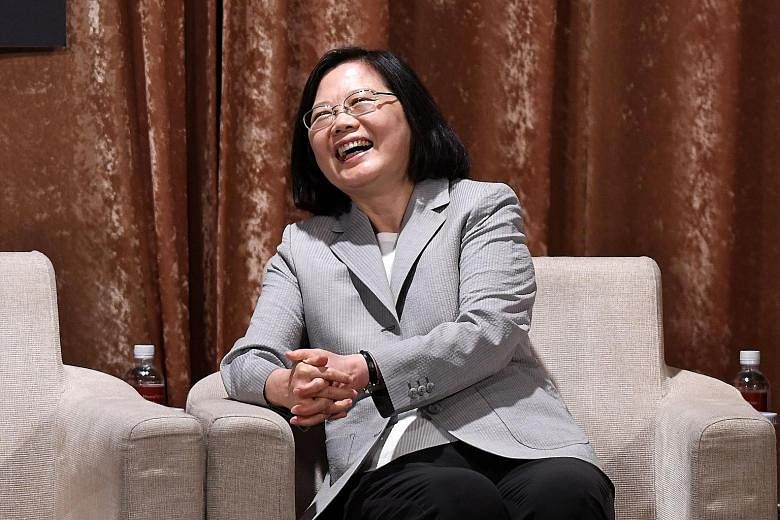TAIPEI • As Taiwan's President Tsai Ing-wen reaches the halfway mark in her first term tomorrow, she is under growing pressure from a public tired of economic stagnation but critical of her reform efforts.
An increasingly aggressive Beijing is tightening the screws on Taiwan diplomatically and sabre-rattling with military drills, but the biggest protests in Taipei in recent months have not been about China relations, which have triggered mass rallies in the past.
Instead, thousands of military veterans and other civil servants have regularly gathered outside Parliament in emotive displays against pension cuts. The rallies have seen physical attacks on journalists and the death of a retired colonel, who fell from a wall during a protest.
Ms Tsai has labelled the cuts "painful but necessary" to prevent public sector pension schemes from collapsing and dragging down government finances.
Some pension funds could go bankrupt as early as 2020 if the system is not overhauled, the government has warned.
Her moves to revise labour laws have also touched a nerve in Taiwan, where salaries have risen by little since the 1990s.
"The government has many loud slogans, but the policies and reforms have not been well-executed, and that lowers public confidence in them," said non-governmental organisation worker Wu Cheng-cheng, 28.
A recent poll by local broadcaster TVBS put Ms Tsai's approval rating as low as 26 per cent, although other surveys found it to be over 50 per cent. When she took office in May 2016, her approval rating stood at 70 per cent.
Taiwan's economy is estimated to have grown 3.04 per cent year on year in the first quarter this year, but analysts say the data means little to regular people who are struggling to make ends meet.
The legal minimum monthly wage in Taiwan is NT$22,000 (S$990), compared with NT$15,840 20 years ago.
The opposition Kuomintang (KMT) party is still on the back foot after a disastrous election in 2016, but observers say Ms Tsai needs to be careful economic woes do not spark a resurgence.
The main challenge in the remainder of her term will be to "deliver measurable improvements to the economy and ease public discontent" so as not to give fuel to the KMT, said Professor Meng Chih-cheng, a political scientist at National Cheng Kung University.
Local elections in November will be a major test. If Ms Tsai's Democratic Progressive Party fails to perform well, some analysts say the party may consider fielding a different candidate for the 2020 presidential election.
AGENCE FRANCE-PRESSE

